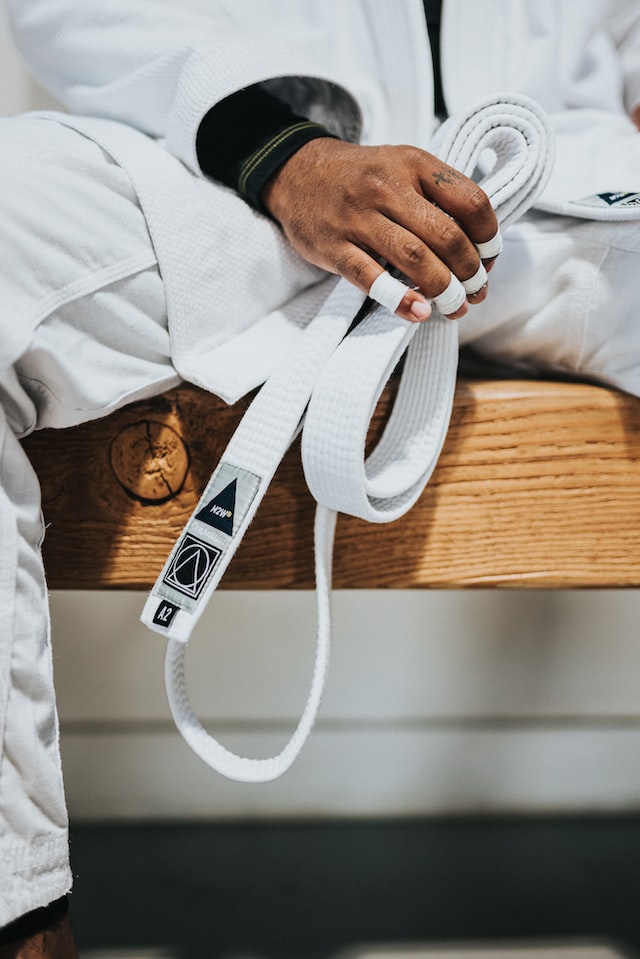Having practiced Aikido for more than six years, there are certain foundational movements that I’ve done perhaps hundreds of times now. They are the basics, what we teach a person in their first days walking into the dojo, and what we continue to practice and study years down the line.
Early in my practice, I felt very happy to stay in focusing on the basics and reluctant to move into the more advanced techniques. But one of my personal guidelines as an adult has been to notice when I feel afraid or disturbed in a situation where my life or wellbeing aren’t in actual danger, and to move toward whatever elicits those feelings with curiosity. My instinct was that pushing myself to the more challenging techniques would show me parts of myself that had been suppressed, and could teach me how to liberate and integrate these qualities into my wholeness.
And in my dojo, my teachers did not allow me to stay stuck in safety but have continued to keep nudging me toward the next step of growth. So whether I wanted it or not, I would be introduced to these more advanced techniques, many of which begin with an attack and end with one of the basic moves.
This extension of myself into a more complex scenario helped me to better understand the basic. “Oh, this is why I have to move this way, or why I’d choose to use this pin instead of that one.” And then it would return me toward renewed passion and curiosity toward the basic move, seeing its depth and power, seeing how much depended on its execution.
In therapy recently, this kept coming up for me in conversation with some clients around ambivalence toward “being basic.” We may want to feel our problems are so unique and complex that they could not possibly have basic solutions. We may feel belittled by attending to the basics. We may be so lost in the complexity that we would not begin to know which basic to grasp.
These responses make so much sense, especially when we’ve spent years struggling to get help, attention, or care for our struggles, and have wrestled with them, alone and misunderstood. It’s like walking onto the mat and being attacked with a flurry of punches and kicks with no instruction as to how to respond, and then being criticized when you find your own instinctive survival solution of collapsing or flailing your arms or running away in terror.
Our problems are incredibly complex, and the basics alone are not enough to master them, but what Aikido has offered me is the wisdom to meet and engage with the complexity until I can find a basic I can use to bring the situation back into harmony.
So often we feel upset with our own suffering and confusion and long to “be fixed,” by which we imagine some magical escape from all we dislike about ourselves, but a more enduring solution is to find a practice with ourselves that we can continue to hone and refine and return to no matter what situation arises. If you’ve done therapy for a long time, it can start to feel repetitive, and that repetition is our practice of the basics.
In my practice, the basics include slowing down the breath, feeling the ground under the feet, sensing into what’s happening in my body, and seeing if I can invite in curiosity toward whatever in me is having a strong reaction. Basics could include journaling or calling a good friend to sort through the thoughts about what is happening. Other basics include our daily habits of health and nourishment. Have you drank water lately? Are you hungry? How much did you sleep last night? When did you last move your body?
There are more, but these are the skills to which I turn toward when I’m feeling lost and overwhelmed. We can turn toward these skills when in the midst of climate grief, the loss of a loved one, being laid off from our jobs, getting a phone call that your child is in jail, or the daily experience of suffering marginalization and belittlement.
In therapy, our desire to run past the basics looks like trying to solve these complex problems together and not staying with the experience of the moment. Though this feels “faster,” it is actually slower, because the intensity of our untended emotional energy is flooding our nervous systems and making it hard to think clearly and separate out the present moment from the crush of personal history.
Basics are the base upon which our lives rest. Strong, well-practiced basics offer us a sturdy foundation upon which to engage with more complex lives. But if we are living without a sense of the basics, and we feel lost and overwhelmed or angry or fearful often, it is worthwhile to find a discipline that calls to you and take on the practice.


